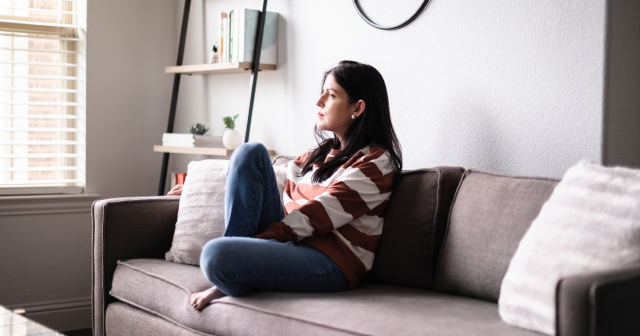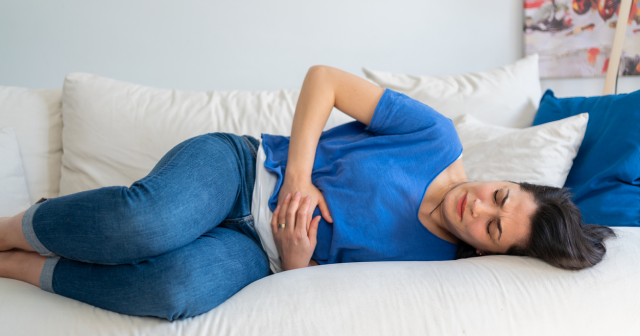Hot flushes and night sweats in menopause
During the menopause and perimenopause, you may experience various symptoms due to the falling levels of hormones that occur at this time including, hot flushes and night sweats. A night sweat is a hot flush that happens at night, or sweating at night that wakes you from sleep. Physical changes happen as your body adapts to changing hormone levels, and the symptoms experienced during the perimenopause and menopause are all part of your body’s adjustment to these changes.
It is common for most women to experience hot flushes when going through the menopause, and while some only have them occasionally or barely at all, others have them many times in the day and at night and find them uncomfortable and disruptive to their life. Hot flushes can start in perimenopause (in the years before your periods stop completely) and can continue for several years after this.
HRT treatment for hot flushes
A commonly prescribed treatment for hot flushes and night sweats during the menopause is hormone replacement therapy (HRT), which aims to boost your levels of the hormones oestrogen and progesterone. By taking HRT some will experience a reduction in menopause symptoms, such as hot flushes, fatigue, headaches, low sex drive, vaginal dryness, mood changes, poor concentration and joint aches and pains.
Although HRT can be a very effective treatment that many people take with good results, it may not be suitable for everyone. Some people prefer to try using other treatments to reduce their menopause symptoms. These include:
- herbal medication
- alternative medicine
- complementary therapy
- non-hormonal medical treatments prescribed by your doctor
- lifestyle changes

Lifestyle changes
There are a number of changes you can make to your lifestyle that can help reduce hot flushes and night sweats. These include doing regular exercise, cutting down on caffeine and alcohol, stopping smoking, and eating a healthy balanced diet. It can also help if you stay cool at night by wearing loose clothes and sleeping in a cool, well-ventilated room, and keeping your stress levels as low as possible – activities such as yoga and meditation can help with this.
Herbal treatments
If you’re considering taking a herbal treatment, it’s very important to discuss this with your doctor first. These would be natural treatments based on the use of plants, or plant extracts, to help relieve menopause symptoms including hot flushes. Examples include:
- isoflavones
- evening primrose oil
- St John’s wort
- black cohosh
- ginseng
There is some limited evidence that isoflavones (an oestrogen-like substance that is produced by various plants) or black cohosh may help to improve hot flushes, but many herbal treatments are not supported by scientific evidence.
Remember that even if a product is labelled ‘natural’, It may still have side effects as the products can vary in quality, effectiveness and strength. Some (such as St John’s wort) may also interfere with prescription medicines.
Look for the Traditional Herbal Registration (THR) logo on herbal products. This means that the product is approved, is of the correct dosage and is of high quality. The pack will also contain information about the product.
Complementary therapy
These are treatments (often in the form of supplements) that can be used alongside conventional medicine (like HRT). Some studies have suggested lavender aromatherapy can help reduce menopause flushing in a safe way without side effects when used with conventional medicines. However, there is insufficient evidence to support aromatherapy as a stand-alone treatment for menopausal symptom management. Homeopathy is sometimes recommended as a treatment for hot flushes, but, again, there’s little convincing evidence for this.

Non-hormonal prescription medication
These are treatments prescribed by your doctor, such as clonidine, gabapentin and antidepressants:
- Clonidine is a tablet taken two or three times a day, and doesn’t affect your hormone levels (unlike HRT). It can take up to a month to start to reduce symptoms of hot flushes.
- Gabapentin is sometimes used to treat hot flushes, although it isn’t licensed for this, being prescribed more often to control nerve pain and epilepsy. However, research has shown it can reduce night sweats and hot flushes. It does have some side effects, so discuss with your doctor to see if it could be an option for you.
- There are two types of antidepressants that can be used to treat hot flushes, and these are called selective serotonin reuptake inhibitors (SSRIs) and serotonin-noradrenaline reuptake inhibitors (SNRIs). They’re not yet licensed for use in treating hot flushes as they haven’t undergone specific clinical trials for this use, but doctors will often prescribe them. They are often used by doctors because of their effectiveness. How they work to help with hot flushes isn’t exactly clear, but in some cases they can provide relief very quickly: this means you only need to try them for a week or two to see if they’ll help. Your doctor can discuss any possible side effects they may have, such as nausea and a lowered sex drive, as well as their possible benefits.
When should I see a doctor about hot flushes?
Although most cases of hot flushes and night sweats are due to the hormone changes of menopause, see your doctor urgently if you have hot flushes or night sweats with symptoms of:
- a high fever
- weight loss
- localized pain in the tummy or back
- a persistent cough
- diarrhoea that doesn’t go away
- unexplained bruising on your body
- severe fatigue
There are a number of other possible causes of hot flushes and night sweats, and your doctor can check for these. These could include anxiety, overactive thyroid, and less commonly cancer.
If you’ve got hot flushes and no other symptoms, make an appointment with your doctor to discuss these.
Your health questions answered
Can I take HRT for hot flushes or night sweats if I have had breast cancer?
 Answered by: Dr Roger Henderson
Answered by: Dr Roger HendersonIf you’ve had any type of cancer that’s sensitive to hormones – such as breast cancer – your doctor won’t recommend HRT. They can discuss alternatives with you that can be very effective. If you’re taking the drug tamoxifen as part of breast cancer treatment you shouldn’t take SSRI antidepressants, as these medicines can interfere with each other.
Key takeaways
- menopause hot flushes and night sweats are caused by the falling levels of hormones in the body that happen at this time
- they can be severe and disruptive to your life as well as causing embarrassment and discomfort
- hormone replacement therapy (HRT) is often used to treat menopause symptoms including hot flushes
- there are a number of treatments available for hot flushes and night sweats that are non-hormonal
- if you’ve any concerns about taking hormonal treatment for hot flushes, or would like to try alternative treatments, discuss this with your doctor







